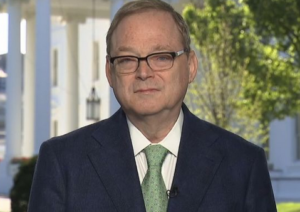After three years of negotiations, the World Health Organization has developed a draft treaty to enhance international cooperation during health emergencies, despite U.S. non-participation.
Global Nations Forge New Pandemic Treaty to Strengthen Health Crisis Response

Global Nations Forge New Pandemic Treaty to Strengthen Health Crisis Response
Landmark health agreement aims for global solidarity and vaccine equity post-COVID-19.
After extensive discussions spanning three years, member nations of the World Health Organization (WHO) have successfully drafted a “pandemic treaty.” This crucial agreement seeks to foster global cooperation in the prevention and management of health crises, primarily focused on preventing the challenges faced during the COVID-19 pandemic, which notably left many developing nations struggling with limited access to vaccines and treatments.
The treaty mandates wealthier nations to disseminate critical information related to pathogens while ensuring equitable access to healthcare interventions, such as vaccines, for all. The legal framework of this treaty is anticipated to be finalized next month, although the United States, having withdrawn from WHO negotiations under President Trump's administration, is unlikely to endorse the new agreement.
While the treaty's scope is more modest than the WHO's initial ambitions articulated during the peak of the pandemic, it represents a significant achievement in multilateral collaboration at a time when the U.S.'s role in global health governance has diminished. Nina Schwalbe, a noted global health consultant, underscores the success of the negotiations, stating, “It shows that with or without the U.S., the world can pull together for global health... There’s a lot in there. It’s maybe not as strong as we wanted on many issues, but there’s lots to build on.”
In December 2021, the WHO brought together a team of negotiators to finalize terms for a comprehensive global health agreement aimed at equipping countries to respond swiftly to future threats. This collaborative effort highlights a growing recognition that global health challenges necessitate solidarity across borders and the sharing of resources.
The treaty mandates wealthier nations to disseminate critical information related to pathogens while ensuring equitable access to healthcare interventions, such as vaccines, for all. The legal framework of this treaty is anticipated to be finalized next month, although the United States, having withdrawn from WHO negotiations under President Trump's administration, is unlikely to endorse the new agreement.
While the treaty's scope is more modest than the WHO's initial ambitions articulated during the peak of the pandemic, it represents a significant achievement in multilateral collaboration at a time when the U.S.'s role in global health governance has diminished. Nina Schwalbe, a noted global health consultant, underscores the success of the negotiations, stating, “It shows that with or without the U.S., the world can pull together for global health... There’s a lot in there. It’s maybe not as strong as we wanted on many issues, but there’s lots to build on.”
In December 2021, the WHO brought together a team of negotiators to finalize terms for a comprehensive global health agreement aimed at equipping countries to respond swiftly to future threats. This collaborative effort highlights a growing recognition that global health challenges necessitate solidarity across borders and the sharing of resources.























